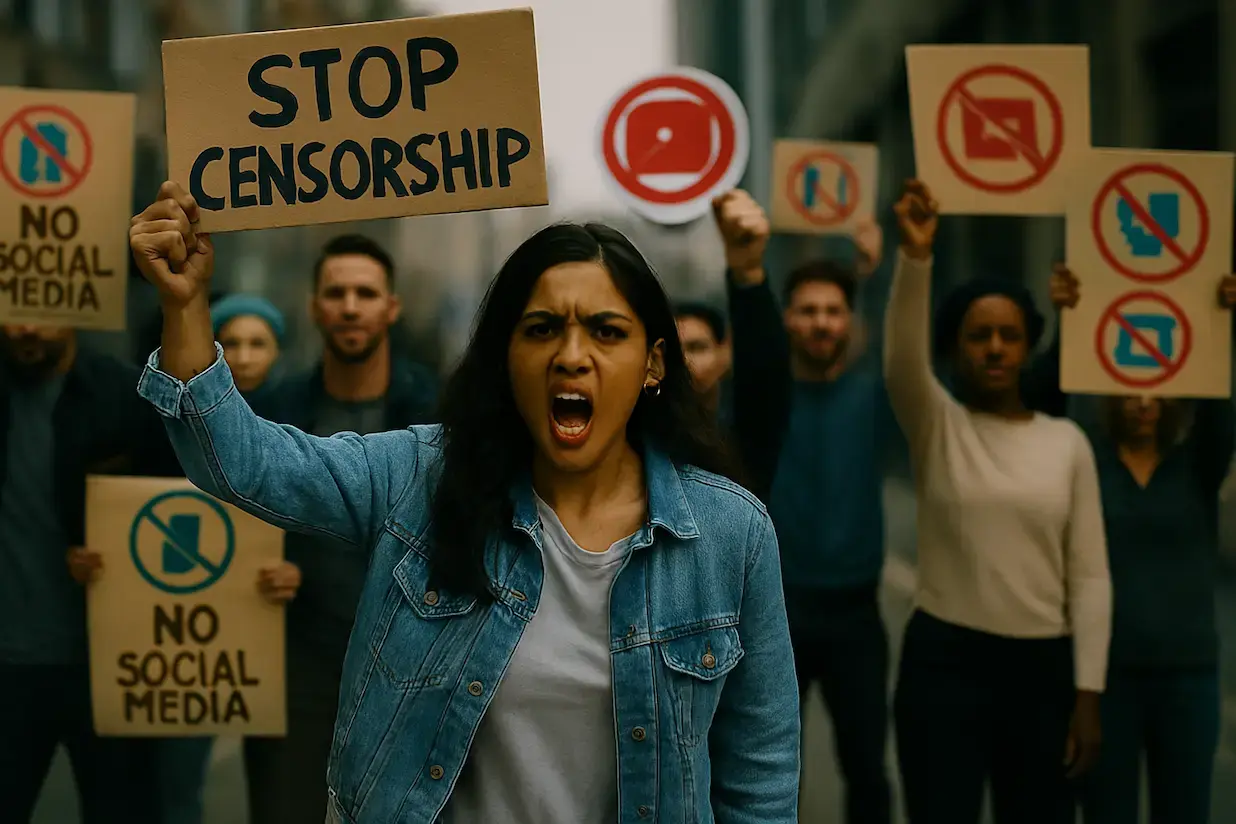
Unstoppable Voices: How Youth Are Fighting Back Against Social Media Bans
Why Social Media Bans Are Sparking Global Protests – In recent months, governments around the world have tightened their grip on social media platforms. From Nepal’s Gen Z uprising to Nigeria’s Twitter ban and India’s evolving IT rules, the battle between state control and digital freedom is heating up. What began as isolated policy changes has now turned into a global debate: Should governments control online speech, or are they silencing dissent?
Let’s explore how these bans are unfolding, why they matter, and what they reveal about the future of democracy in the digital age.
1. The Rise of Social Media Bans: Who’s Blocking What?
Social media platforms like Facebook, Instagram, YouTube, and TikTok have become powerful tools for activism, journalism, and public debate. But in many countries, they’re now being treated as threats.
Global Examples:
- Nepal: In September 2025, the government banned 27 platforms, triggering youth-led protests that led to over 30 deaths and the resignation of the Prime Minister.
- India: New IT rules require platforms to trace messages and remove “offensive” content within hours raising concerns about surveillance and censorship.
- Nigeria: Twitter was banned in 2021 after it deleted a presidential tweet. The ban lasted months and sparked international backlash.
- Iran & China: Long-standing restrictions on Western platforms continue, with homegrown alternatives tightly monitored.
Governments often justify these bans as necessary for national security, preventing misinformation, or protecting cultural values. But critics argue they’re being used to silence opposition and control narratives.
2. Why Social Media Matters: More Than Just Memes
Social media isn’t just entertainment, it’s infrastructure for modern democracy. It allows citizens to:
- Share news instantly
- Organize protests and campaigns
- Hold leaders accountable
- Amplify marginalized voices
In countries with limited press freedom, platforms like X (formerly Twitter) and YouTube have become lifelines for independent journalism. When these are blocked or restricted, it’s not just a tech issue, it’s a democratic one.
Voices from the Ground
In Nepal, young protesters said the ban felt like “being cut off from the world.” In India, digital rights activists warn that vague laws could criminalize satire, criticism, or even memes.
The fear isn’t just about losing access, it’s about losing agency.
3. The Legal and Ethical Debate: Who Controls the Internet?
Governments argue that regulation is necessary to prevent hate speech, fake news, and cybercrime. But where should the line be drawn?
Key Questions:
- Who decides what content is “offensive” or “dangerous”?
- Should platforms be forced to reveal user identities?
- Can bans be challenged in court or are they above scrutiny?
In India, the Supreme Court is reviewing petitions against the IT Rules, while in the U.S., debates rage over Section 230, which protects platforms from liability for user content.
Meanwhile, tech companies are caught in the middle—trying to comply with local laws while defending free speech.
4. What’s Next: Resistance, Reform, or Retreat?
The backlash against social media bans is growing. In Nepal, Gen Z protesters demanded digital freedom as a core right. In India, civil society groups are pushing for clearer laws and judicial oversight.
Possible Futures:
- Digital Rights Movements: More citizens may organize to protect online freedoms.
- Platform Innovation: Decentralized apps and encrypted networks could bypass censorship.
- Policy Reform: Courts and lawmakers may refine rules to balance safety and freedom.
- Global Pressure: International bodies like the UN may step in to protect digital rights.
But the road ahead is uncertain. As governments gain more tools to monitor and control online spaces, the fight for digital democracy will only intensify.
Final Thoughts: The Internet Is Political And Personal
Social media bans aren’t just about apps, they’re about power. They reveal how governments view dissent, how citizens claim their rights, and how technology shapes society. Whether you’re a student in Kathmandu, a journalist in Delhi, or a coder in Lagos, your digital freedom is part of a larger story.
And that story is still being written.
Also read: Nepal Youthquake: Army Steps In as Gen Z Protest Shakes the Nation
Stay informed with the latest news and updates – only on Rapido Updates.